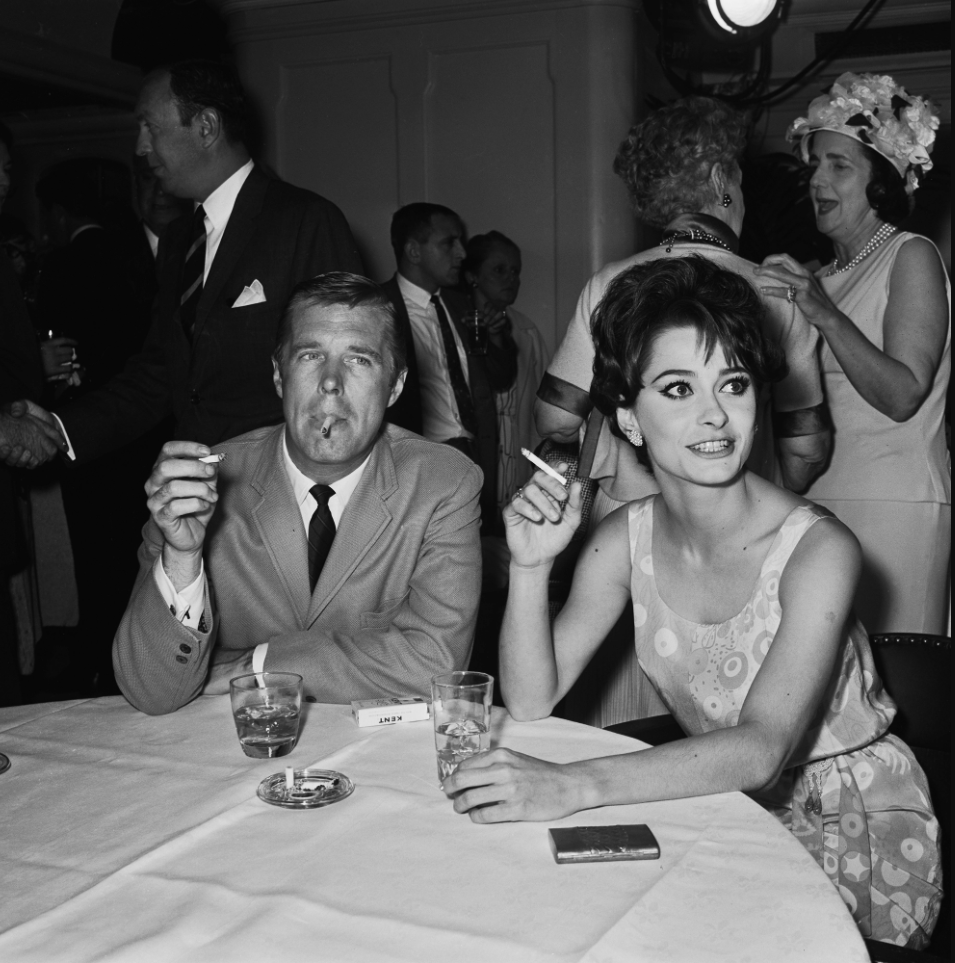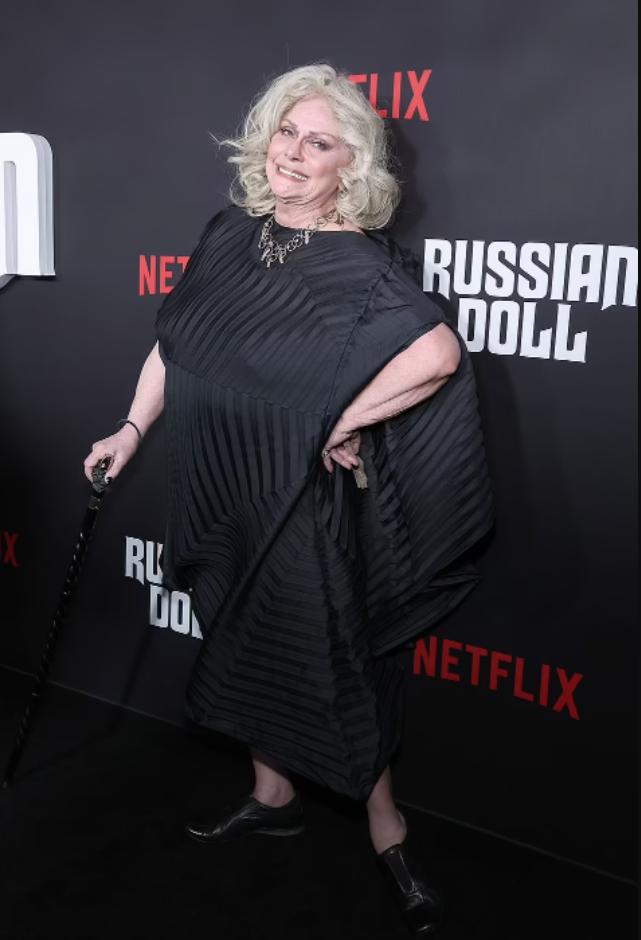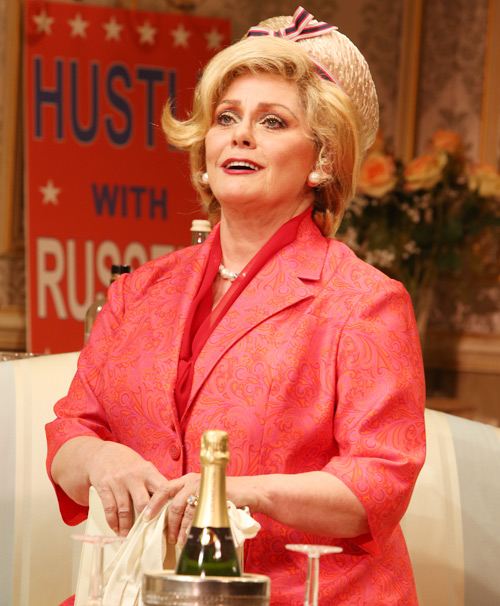In 1962 at the age of 22, Elizabeth Ashley won the Tony Award for Best Featured Actress in a Play for her portrayal of Mollie Michaelson in Phoebe and Henry Ephron’s Take Her, She’s Mine. Along with her 1962 win, Elizabeth has also received two other Tony Award nominations for originating the role of Corie in Neil Simon’s Barefoot in the Park and for her Margaret in the 1974 revival of Tennessee Williams’ Cat on a Hot Tin Roof.
She has been featured in more than 30 movies, including the 1964 film The Carpetbaggers, as well as dozens of TV series, including the currently running Netflix original series, Russian Doll.
We were fortunate enough to speak with Elizabeth and get Twenty questions with a Tony Award Winner.

1. What were your first thoughts upon being nominated for a Tony Award?
“To say it was a shock is to underestimate the effect it had on me. You have to remember that I was very young, and I gotten the part in this play because it was just – at the time when Art Carney had left The Honeymooners and the part was not originally that big, and George Abbot kept rewriting and rewriting to the point where my part got much bigger and showier. It became a play more centered on the relationship between Art and my character. It had never even occurred to me but being nominated was a big deal and I felt like the hottest little twinkie on Broadway… I was nominated again for Barefoot in the Park, which was surprising to me. I remember I was supposed to present but had some teenage drama, you know, so I wasn’t able to present… For Cat on a Hot Tin Roof, Tennessee wanted his original version done, and that was directed by the brilliant Michael Kahn. It got a lot of national press and Roger Stevens brought it to Broadway and then the Opera House… Because it was such a huge success both critically and in every other way it could be, it was totally expected.”
2. What were your first thoughts upon winning?
“When they called my name, I mean, it was like a mental, emotional, and psychological explosion because I was so young and inexperienced. I couldn’t really grasp the meaning of it.”
3. Do you have any fond memories from that night?
“I remember Charles Nelson Reilly won also that night, and I remember he and I sort of walking out together and Charles grabbed my hand as we were trying to cross Park Avenue and he said, ‘Well look at us, we’re the newest stars around here’.”
4. What is the biggest change you experienced after winning?
“I think I was being paid maybe $100 a week and I think I got a raise to $125. The thing I remember most clearly was being offered star billing, and my brilliant young agent, Stark Hesseltine, said ‘Absolutely not. In the Theatre, once you go above the title, you must never go below it again.’ And he was saying that to someone who was 22 years old, so of course I did what he said, and I took my $25 raise and was utterly happy with it. Because I was so young and it was considered unusual at the time for a young actress to be considered funny, so that got a lot of attention and press, and I think that opened many many doors to me. Overall, let me just say, no one that I know of was luckier than I was at the beginning of my career, and it all happened so fast. It was years before I could begin to start to look back and think what it meant…I remember it was the first time I was sent pages, and they were from Neil Simon and he wanted to write a play for me to be in, which would lead to Barefoot in the Park… I didn’t realize how unusual and remarkable it was.”
5. Who has been a Mentor in your career?
“The great Roger L Stevens, the man who built the Kennedy Center. He had the playwrights company that represented Tennessee Williams. When I was an understudy in a hit comedy called Mary, Mary, and I wasn’t even a standby, I was an understudy where I had to be there all the time and that’s where I met Roger Stevens. I suppose the next great mentor or the man who made me a ‘star’ was the great George Abbott in the play that won me the Tony, Take Her, She’s Mine.”
6. What is the best advice you have received?
“There is a brilliant director named Michael Wilson that I owe a great deal too. Any actress goes through those times when no one wants to hire them for anything. For many years, Michael was the Artistic Director at Hartford Stage and put together an extraordinary company of actors and designers… On stage, because I was physical, I always tended to move around to much. I’ve never been known to underact. Because Michael and I clicked so well that he went right at all the bad habits I had. He went right for every psychological grab bar or comfort we had, which over all the years, has made me a better actress than I would have been.”
7. Who is one of your favorite playwrights you’ve worked with?
“Tennessee [Williams] and I had an immediate affinity. We became close. Tennessee loved actors. My God he loved actors. He was amazing and extraordinary… His plays are operatic. The soliloquies are like arias in a sense and his use of breaking the fourth wall was remarkable… If I ever became known for anything, it was Tennessee Williams plays. We became very close friends. If one wants to know about Tennessee, they should read the book by John Lahr who spent 13 years writing the biography. Tennessee has never written a play that when I read it or saw it, I didn’t immediately identify and understand the soul of it.”
8. What is a play you would like to re-read?
“I look forward to re-reading The Visit. I haven’t read it in years and I would like to read it again to see if it still applies the way I have always thought. I’d like to re-read Shakespeare’s Antony and Cleopatra. I would also like to re-read some of his [Shakespeare] comedies. I can pull out my big, fat book of Shakespeare.”
9. What is a show you look forward to seeing?
“The play I am really looking forward to seeing after my knee heals is Tracy Letts’ The Minutes. I had the privilege of being in August: Osage County.”
10. What is the last book you read?
“I tend to read an awful lot of peculiar history and detective novels. Give me a good Michael Connelly book any day and I’ll go for it.”
11. What is a dream-role you want to play?
“The one Tennessee I never played was Streetcar Named Desire because by the time I could’ve done it, it had been done brilliantly by several actors… The one part that I lusted after and longed to play and have never had the opportunity is The Visit. It needs a great translation… I knew that woman. I knew that situation. I knew that was me.”
12. What previous role of yours had the best costumes?
“I think when I played Isadora Duncan in a play called When She Danced at Playwrights Horizons. I’ve had brilliant costume designers, but Jess Goldstein, those were the most gorgeous costumes I’ve ever had. One of the first things I did after coming out of retirement and coming back to New York, there was the designer Peter Joseph for The Enchanted by Giraudoux at the Kennedy Center. Those costumes were ones that I kept and loved forever… This sounds very diva-ish, but one of the things I won’t work without is a Paul Huntley wig.”
13. Which role of yours did you feel most similar to?
“For Cat on a Hot Tin Roof, what can I say, this will sound like arrogance, but that’s not in the least in the way I mean it, but that part [Maggie] had my name on it. I knew Maggie. There was not one thing in that play that I hadn’t lived or known or experienced in my life of in the lives around me. In part she was my mother.”
14. Which role of yours felt the most different from you?
“Well, this Netflix series, Russian Doll. That character was, in many ways, quite distant from me. Much more contained. I had to approach it in a totally different way. Also, Isadore Duncan in When She Danced, I had to really stretch out for that.”

15. What has been a creative challenge you have faced in your career?
“Probably Ceasar and Cleopatra. I didn’t know what I was going to do with that play, because it was Shaw, but the first famous scene you are kind of on your own in a sense. I had done so much research and I knew her age and that she was exiled because they wanted her dead. She was like a feral child that had grown up in the sewers, which led me to make a more radical choice in how she looked so you would see the story of a powerful man creating a queen. Developing it, towards the end, became a challenge because I had to age her and tame and teach her. It was challenging to find the truth and comfort zone of that without ‘acting’ it.”
16. What is one of your favorite theatrical experiences to have been a part of?
“I think my best work ever and the part I identified with the most was in Sweet Bird of Youth. I think that’s my favorite role I had the privilege to play. Again, under the direction of the wonderful Michael Kahn.”
17. What is a song that always makes you smile?
“Desperado by The Eagles.”
18. What is your favorite cocktail?
“Straight gold tequila in a shot glass.”
19. What is a place you would like to visit?
“The most joyous and happy times of my life were when I was retired and became a sailor and lived in the Caribbean on an ocean raising sailboat. When I went, the islands were a secret. There were no roads, no electricity, no phones. The one thing I have done is travel all over the world and lived all over the world… I think where I’d like to go again is the Scandinavian countries. There are islands off Norway that I’d like to see what happening there.”
20. What is your favorite part of theatre?
“The theatre is my home, you know. A stage, it’s instinctive. There is something in my DNA that understands it, respects it, adores it, loves it, and damn well knows what to do on it. The thing I have always loved the most is the research. Basically, I’ve always said I’m a mechanic. I like to go under the hood and take it apart and put back together and make it go like a race car. Good directors have helped me when I need to make it into an old Plymouth and not Ferrari.”

